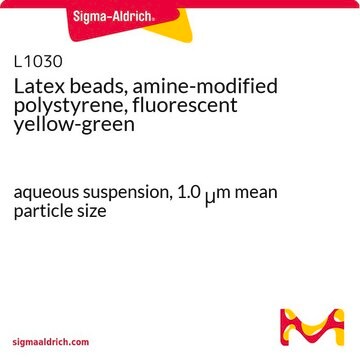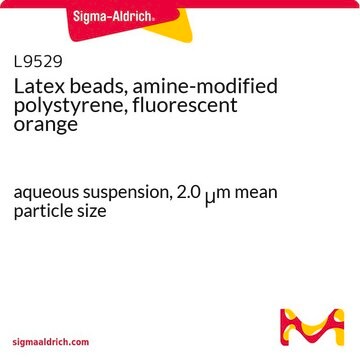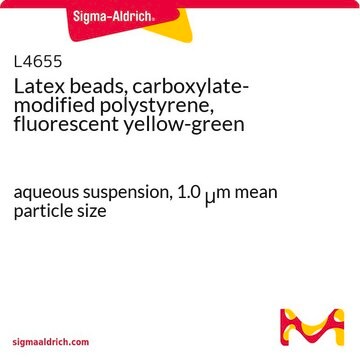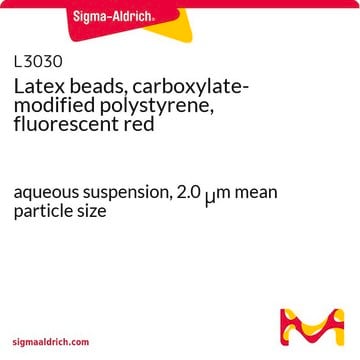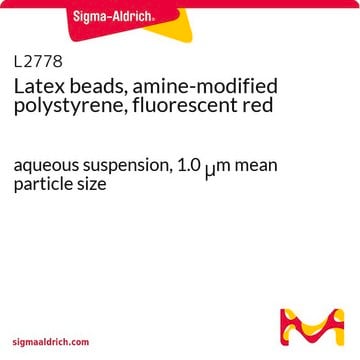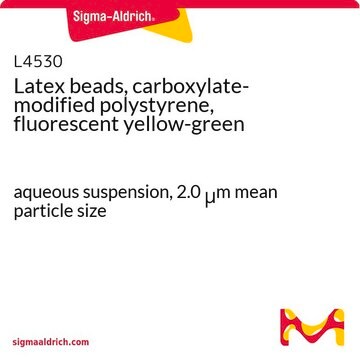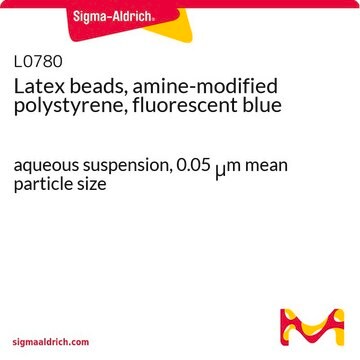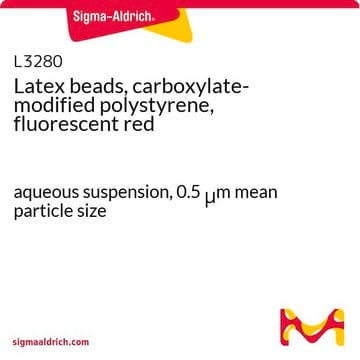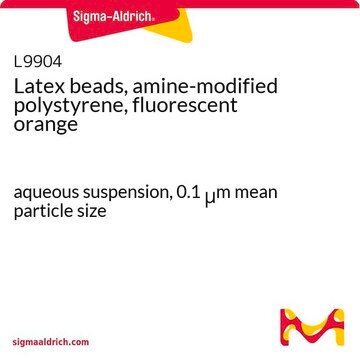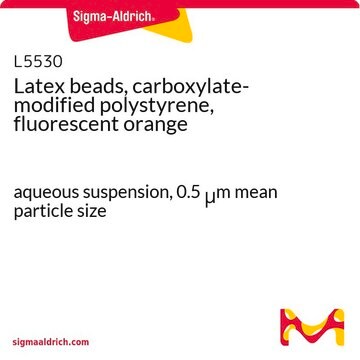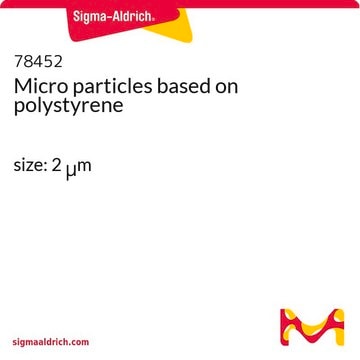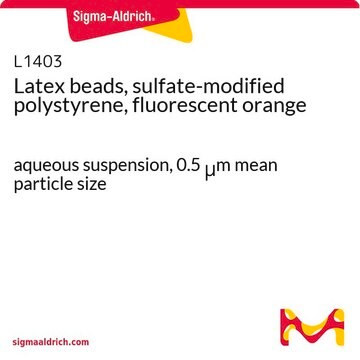L0280
Latex beads, amine-modified polystyrene, fluorescent blue
aqueous suspension, 2.0 μm mean particle size
Sign Into View Organizational & Contract Pricing
All Photos(1)
About This Item
Recommended Products
form
aqueous suspension
Quality Level
composition
Solids, 2.5%
technique(s)
cell based assay: suitable
mean particle size
2.0 μm
fluorescence
λex ~360 nm; λem ~420 nm
application(s)
cell analysis
Looking for similar products? Visit Product Comparison Guide
Application
Latex beads, amine-modified polystyrene, fluorescent blue has been used:
- as inert beads to study the role of autophagy proteins in LC3-associated phagosome (LAP) maturation
- in the culturing of peritoneal cells for phagocytic latex bead assay ex vivo
- in the preparation of LAP stimuli coated beads
Biochem/physiol Actions
Polystyrene latex beads can be used to create latex agglutination systems. Polystyrene latex beads have been used to study the transmission of Mycobacterium leprae, the causative pathogen of leprosy, as well as to develop a method for mass screening for both pulmonary and extrapulmonary tuberculosis.
Storage Class Code
10 - Combustible liquids
WGK
WGK 2
Flash Point(F)
Not applicable
Flash Point(C)
Not applicable
Certificates of Analysis (COA)
Search for Certificates of Analysis (COA) by entering the products Lot/Batch Number. Lot and Batch Numbers can be found on a product’s label following the words ‘Lot’ or ‘Batch’.
Already Own This Product?
Find documentation for the products that you have recently purchased in the Document Library.
Customers Also Viewed
A C Perry et al.
Biology of reproduction, 60(3), 747-755 (1999-02-20)
To initiate normal embryonic development, an egg must receive a signal to become activated at fertilization. We here report that the ability of demembranated sperm heads to activate is abolished after incubation over the range 20-44 degreesC and is sensitive
Sadayuki Hashioka et al.
Journal of Alzheimer's disease : JAD, 14(3), 345-352 (2008-07-05)
Microglial phagocytosis of amyloid-beta (Abeta) deposits is involved in Abeta clearance in vivo. To explore the ability of microglia to phagocytose beta, we cultured human microglia or human monocytic THP-1 cells directly on unfixed frontal cortex sections of an Alzheimer
Laure-Anne Ligeon et al.
Nature communications, 12(1), 1508-1508 (2021-03-10)
LC3-associated phagocytosis (LAP) contributes to a wide range of cellular processes and notably to immunity. The stabilization of phagosomes by the macroautophagy machinery in human macrophages can maintain antigen presentation on MHC class II molecules. However, the molecular mechanisms involved
Laure-Anne Ligeon et al.
Methods in molecular biology (Clifton, N.J.), 1519, 145-168 (2016-11-07)
The noncanonical macroautophagy pathway, LC3-associated phagocytosis (LAP) has recently emerged as an important catabolic process involved during exogenous antigen processing. It has been described that in human macrophages and dendritic cells the direct recruitment of LC3 to the phagosomal membrane
Jinming Yang et al.
Cancer research, 74(24), 7274-7284 (2014-10-23)
Myeloid cells are capable of promoting or eradicating tumor cells and the nodal functions that contribute to their different roles are still obscure. Here, we show that mice with myeloid-specific genetic loss of the NF-κB pathway regulatory kinase IKKβ exhibit
Our team of scientists has experience in all areas of research including Life Science, Material Science, Chemical Synthesis, Chromatography, Analytical and many others.
Contact Technical Service